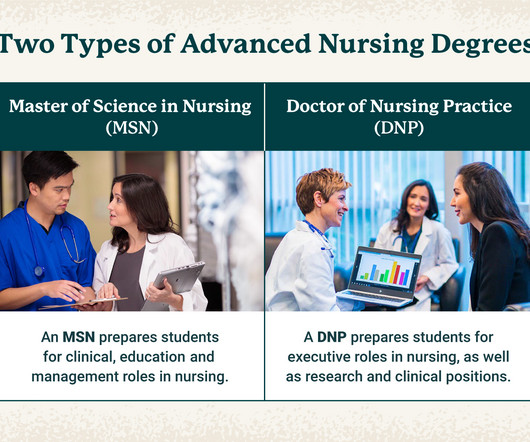Leadership in Healthcare: Essentials to Become a Healthcare Leader
University of St. Augustine for Health Sciences
APRIL 16, 2025
Businesses flourish thanks to the contributions of great leaders. By maintaining focus on their vision, leaders guide their teams to make progress on their patient and business goals even when they are simultaneously pulled in several directions. Act as a Mentor 3 Good healthcare leadership equates to supportive mentorship.











Let's personalize your content